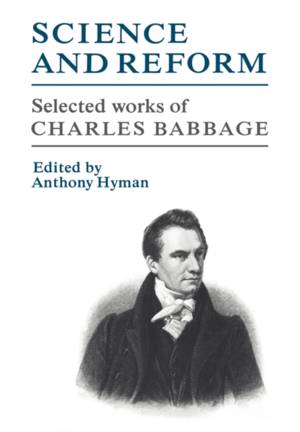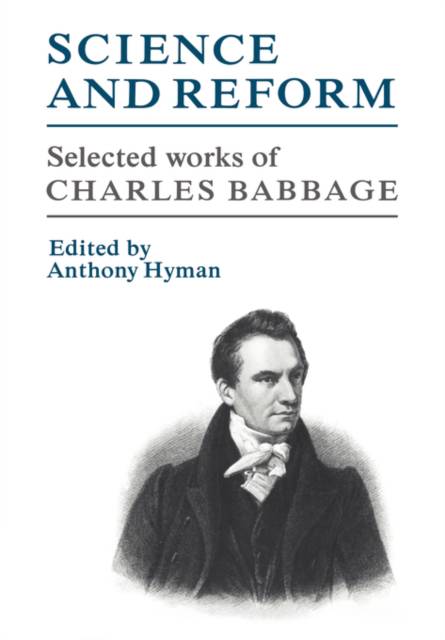
- Afhalen na 1 uur in een winkel met voorraad
- Gratis thuislevering in België vanaf € 30
- Ruim aanbod met 7 miljoen producten
- Afhalen na 1 uur in een winkel met voorraad
- Gratis thuislevering in België vanaf € 30
- Ruim aanbod met 7 miljoen producten
Zoeken
€ 108,45
+ 216 punten
Omschrijving
Charles Babbage, considered the founding father of the computer, was a key figure during a great era of British history. Best remembered for his pioneering work on analytical and difference engines, the forerunners of the modern computer, Babbage was also an active campaigner for reform in both science and society. Babbage's wide-ranging interests ran from economic theory and statistics, to lighthouse signalling and postal services. His book, Reflections on the Decline of Science in England and Some of its Causes (1830) reflected his attempts to reorganize and control the conduct of scientific activity at a national level. In addition, he published widely on theoretical and practical science and social reform. In this book, Anthony Hyman, the acknowledged expert on Babbage's life and work, has selected passages from these many publications--reflecting his innovative scientific work and his thoughts on such subjects as taxation, abolition of life peerage and the assurance of lives--subjects which anticipated the preoccupations of present day society.
Specificaties
Betrokkenen
- Auteur(s):
- Uitgeverij:
Inhoud
- Aantal bladzijden:
- 368
- Taal:
- Engels
Eigenschappen
- Productcode (EAN):
- 9780521036764
- Verschijningsdatum:
- 5/03/2007
- Uitvoering:
- Paperback
- Formaat:
- Trade paperback (VS)
- Afmetingen:
- 170 mm x 244 mm
- Gewicht:
- 585 g

Alleen bij Standaard Boekhandel
+ 216 punten op je klantenkaart van Standaard Boekhandel
Beoordelingen
We publiceren alleen reviews die voldoen aan de voorwaarden voor reviews. Bekijk onze voorwaarden voor reviews.








